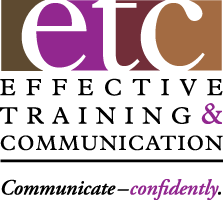This month, ‘WordPower’ feature deals with some rules of grammar and which ones you should consider breaking if you want to enhance your routine workplace writing.
I hated traditional grammar in school like most people … and most writers. So, I routinely break some time-honored practices today just to have fun, flaunt my sense of independence and creativity and get back at Professor Gwendolyn Apostrophe-Dingleberry for all her abuses in 11th grade English class. If only she could know that I earn some of my living as a professional freelance writer and business writing trainer, she’d turn over in her grave in Grammar Hell.
In my workshops and coaching engagements, I usually make these points about grammatical rules:
- With minor traditional rules (e.g. – should have been a comma instead of a semi-colon, don’t begin a sentence with ‘And’, etc.), 90% of your busy business readers won’t notice the ‘mistake’. And of the 10% who do notice, 90% of them won’t care enough that they lower their opinion of you.
- In these cases, break these rules consistently. Those readers may notice that you used a comma in one sentence but a semi-colon in the same situation in another. Even if both are equally acceptable, the difference usually suggests one was wrong.
That said, here are some of my favorite grammar rule violations that I’ve been getting away with for year. Long Live WordPower!
- Putting the final punctuation outside the close quote mark in a sentence with a partial quote (Bob said that the meeting was like ‘herding mice’.). Spell check doesn’t like this, but I always override it. If the sentence was ‘Bob said that the meeting was like herding mice.‘, that would be different.
- Hyphenating words that don’t require a hyphen, if that makes it easier for a busy reader to understand, such as ‘un-subscribe’ or ‘re-order’.
- Using bullets, dashes and ellipses a lot – works for my sense of style and ease of readability.
- Regularly converting passive voice to active voice and noun phrases to verbs, even though both are grammatically acceptable and, in some circles, preferred.
- Using sentence fragments for conversational style and effect. And for impact.
- Ending sentences in prepositions without hesitation, stressing that we talk that way in contemporary workplace conversations. ‘Anne, with whom do you want to work?‘ is correct but archaic and not very conversational. ‘Anne, who do you want to work with?’ sounds like people talking to people. For those who have an emotional problem with that approach, I offer an alternative – ‘Who do you want to work with, Anne?’ Same conversational flow, doesn’t end in a preposition and no whacks from the Professor’s yardstick.
I hope this rant helps you write with more confidence and power and less guilt when you break those rules. And do let me know some of your favorite rules to break so we can keep this conversation going. Long Live WordPower, Indeed!
